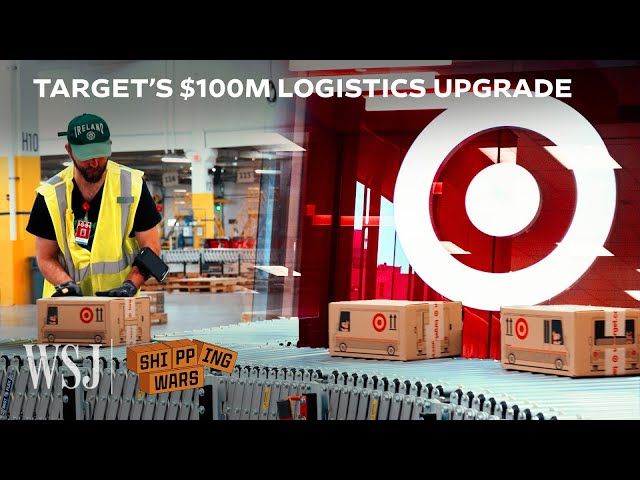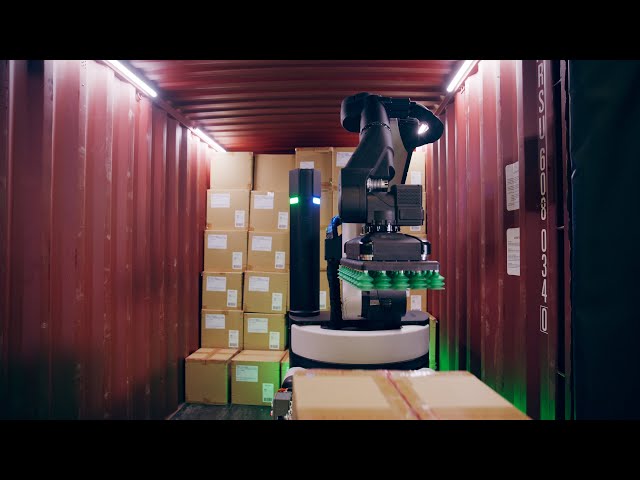Yossi Sheffi: Supply Chain, AI and the Future of Work.
Supply chain AI will disrupt the industry. Learn as much as you can from experts like Yossi Sheffi.
Yossi Sheffi is widely known for his expertise and contributions to the field of supply chain management. He is a professor at the Massachusetts Institute of Technology (MIT) and has made significant contributions in research, education, and industry engagement. Some key areas for which Yossi Sheffi is known include:
- Supply Chain Resilience: Sheffi has extensively studied and written about the resilience of supply chains, particularly in the face of disruptions and risks. His book “The Resilient Enterprise” explores strategies and practices for building robust supply chains capable of withstanding and recovering from various disruptions, such as natural disasters, geopolitical events, and supply chain disruptions.
- Supply Chain Risk Management: Sheffi’s work emphasizes the importance of identifying, assessing, and managing risks in supply chains. He has highlighted the need for proactive risk management strategies, including scenario planning, contingency planning, and supply chain mapping, to enhance supply chain resilience and mitigate potential disruptions.
- Transportation and Logistics: Sheffi’s research also focuses on transportation and logistics, including the optimization of transportation networks, distribution strategies, and the impact of transportation on supply chain efficiency. He has examined the integration of various modes of transportation and the role of technologies, such as RFID and GPS, in improving visibility and efficiency.
- Sustainable Supply Chains: Sheffi has contributed to the understanding of sustainability in supply chain management. He has examined the environmental and social impacts of supply chain operations, as well as strategies for reducing carbon footprints, promoting ethical sourcing, and incorporating sustainability practices into supply chain decision-making.
- Industry Engagement: Alongside his academic work, Sheffi has been actively involved in engaging with industry practitioners and policymakers. He has collaborated with numerous organizations, conducted executive education programs, and advised companies on supply chain management strategies. His engagement with industry ensures that his research remains relevant and applicable to real-world supply chain challenges.
Yossi Sheffi’s work has had a significant influence on the field of supply chain management, and he is recognized as a thought leader in the industry. His research and publications have helped shape best practices and provide guidance to organizations seeking to optimize their supply chain operations and enhance resilience.
AI has potential to significantly transform the supply chain industry.
Here are some ways in which AI can change supply chain operations:
- Demand Forecasting and Planning: AI can improve demand forecasting accuracy by analyzing historical data, market trends, and external factors. It can identify patterns, seasonality, and fluctuations to generate more accurate demand forecasts. This helps optimize inventory management, production planning, and resource allocation, reducing costs and improving customer satisfaction.
- Inventory Optimization: AI can optimize inventory levels by analyzing real-time data on customer demand, supply chain performance, and market dynamics. It can dynamically adjust inventory levels, reorder points, and safety stock based on demand patterns, lead times, and service level targets. This enables businesses to reduce inventory holding costs while ensuring stock availability.
- Supply Chain Visibility and Transparency: AI-powered analytics can provide real-time visibility into the supply chain, tracking products, materials, and shipments. This improves traceability, enables proactive issue detection, and facilitates timely decision-making. AI algorithms can analyze vast amounts of data from multiple sources, such as sensors, IoT devices, and ERP systems, to provide actionable insights and mitigate supply chain risks.
- Intelligent Sourcing and Supplier Management: AI can help optimize supplier selection, evaluation, and management. It can analyze supplier performance, track compliance, and assess risks, allowing businesses to make informed decisions. AI can also identify alternative suppliers, evaluate supplier capacity, and negotiate contracts to improve cost-efficiency and mitigate supply disruptions.
- Autonomous Vehicles and Delivery Optimization: AI technologies such as autonomous vehicles and drones have the potential to revolutionize last-mile delivery. AI algorithms can optimize delivery routes, dynamically adjust schedules, and minimize fuel consumption. This leads to faster, more efficient deliveries and reduced transportation costs.
- Predictive Maintenance: AI-powered predictive maintenance can help optimize equipment maintenance schedules and reduce downtime. By analyzing sensor data, AI algorithms can detect anomalies, predict equipment failures, and schedule maintenance activities proactively. This minimizes disruptions, improves asset utilization, and extends the lifespan of critical machinery.
- Risk Management and Resilience: AI can enhance supply chain resilience by identifying potential risks and disruptions. It can analyze data from various sources, such as weather patterns, geopolitical events, and market trends, to provide early warnings and enable proactive risk mitigation strategies. AI can also simulate scenarios, test contingency plans, and optimize supply chain responses to unexpected events.
These are just a few examples of how AI can change the supply chain. The precise impact of AI will depend on the specific applications, industry context, and implementation strategies. It’s important to note that while AI can automate certain tasks and improve decision-making, human expertise and judgment will remain crucial in managing and optimizing complex supply chain operations.
SCM and Automation Quotes
- “Products can be easily copied. But a supply chain can provide a true competitive advantage.” ~Yossi Sheffi
- “By the time we get to the 2040s, we’ll be able to multiply human intelligence a billionfold. That will be a profound change that’s singular in nature. Computers are going to keep getting smaller and smaller. Ultimately, they will go inside our bodies and brains and make us healthier, make us smarter.” ~Ray Kurzweil.
- “Past supply chain automation efforts will pale in comparison to the automation coming with IoT and Artificial Intelligence.” ~Dave Waters.
- “If you can’t describe what you are doing as a process, you don’t know what you’re doing.” ~ W. Edwards Deming.
- “In the modern world of business, it is useless to be a creative original thinker unless you can also sell what you create. Management cannot be expected to recognize a good idea unless it is presented to them by a good salesman.” ~David M. Ogilvy
- “Supply Chain is like nature, it is all around us.” ~Dave Waters
- “Our research says that 50% of the activities that we pay people to do can be automated by adapting currently demonstrated technologies. We think it’ll take decades, but it will happen. So there is a role for business leaders to try to understand how to redeploy talent. It’s important to think about mass redeployment instead of mass unemployment. That’s the right problem to solve.” ~Michael Chiu
Supply Chain, AI and Automation.
- Artificial Intelligence Taking Supply Chain Jobs.
- Best Artificial Intelligence Quotes.
- ChatGPT Asked to Create Songs About Supply Chain by Eminem, Elvis Presley, Blake Shelton and more.
- ChatGPT uses AI to Pass MBA Exam at UPenn’s Wharton.
- Future of Supply Chain with Artificial Intelligence.
- Microsoft CEO Satya Nadella: Products Will Access Open AI Tools Like ChatGPT.
- Reply by ChatGPT when asked: “How will artificial intelligence (AI) impact supply chain?”
- Stimulate Your Mind with These Quotes about the Future.
- Supply Chain Quotes: Take it to the next level.
- Tesla: Artificial Intelligence Manufacturing Revolution.
- Top Quotes about AI, Automation and Robotics.
- What Is Industry 4.0 and How Did We Get Here?
- Young Entrepreneur Discovered A Way to Improve Supply Chain Logistics With Augmented Reality.
Supply Chain Automation
Target Supply Chain Strategy to Beat Amazon and Walmart’s Fast Delivery.
How Additive Manufacturing is Transforming Supply Chain.
Automated Trailer Unloading with Boston Dynamics Stretch Robot

The post Yossi Sheffi: Supply Chain, AI and the Future of Work. appeared first on Supply Chain Today - Homepage.





















